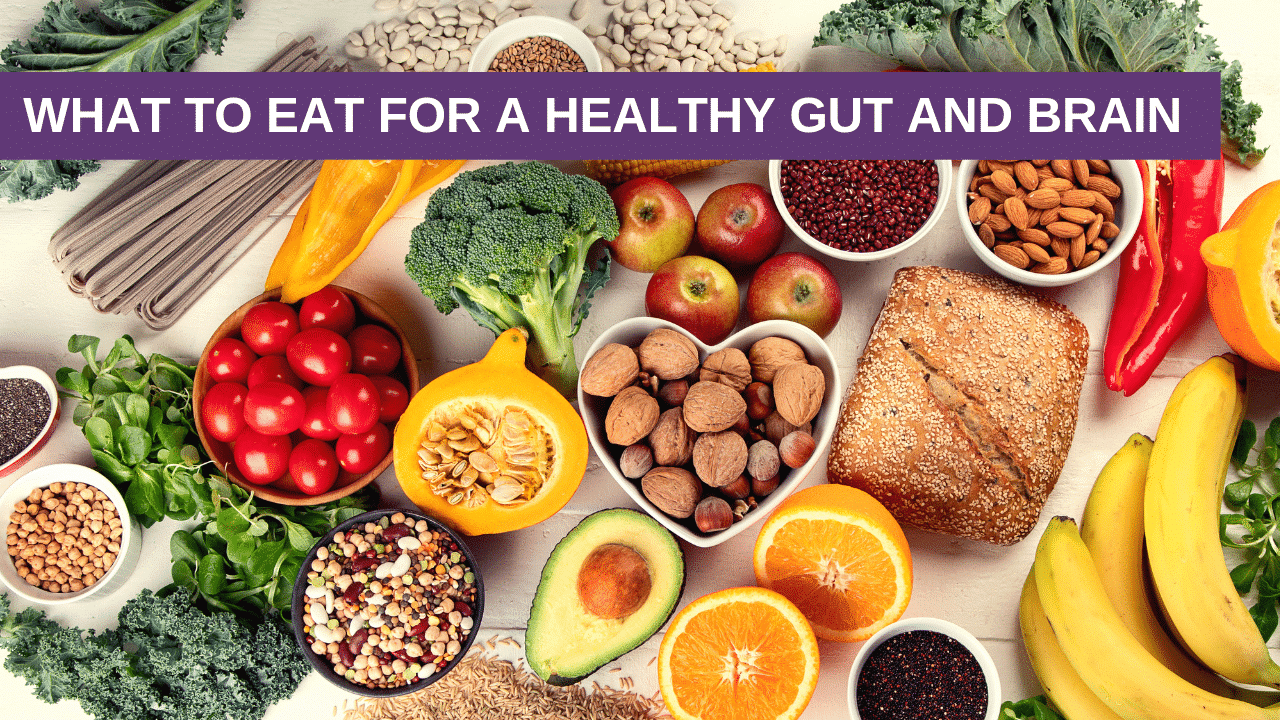So what can you eat for a healthy gut and a healthy brain? Let’s talk about it.
Your gut and brain require very similar nutrients. I like to think of your gut as one of your three brains – meaning a center of neurotransmitter production. Your first brain is your heart. Your second brain is your gut, which also produces neurotransmitters. Your third brain is the one in your head.
Your brain isn’t the most important for survival. You need your heart functioning and you need your gut functioning. You can be in a coma and still be alive. That’s why nutrients from your diet tend to be shunted towards your heart and your gut before your brain. So you’re more likely to become depressed and anxious or have difficulty concentrating when you’re under stress than deprive your heart or gut of essential nutrients.
There are three main foods groups that help your gut and brain stay healthy:
#1 PUFAs
Polyunsaturated fatty acids or PUFAs help improve the neurological and the neuroendocrine system in the brain and the gut. Polyunsaturated fatty acids are rich in omega three fatty acids. Foods that are rich in PUFAs include salmon, sardines, anchovies, seaweeds, algae flaxseed, chia seeds, and walnuts.
#2 Fermented Foods
Fermented foods contain probiotics that are very important to gut and brain health. These natural probiotics help to reinforce your microbiome – the microorganisms in your gut that keep you healthy. Probiotics are beneficial bacteria for your gut, and fermented foods are rich in them.
The process of fermentation encourages the growth of these microorganisms that are healthy for your gut. And when your gut microbiome is healthy and balanced, it helps to balance your brain, including adequate neurotransmitter production. Fermented foods that contain natural probiotics are miso, tofu, tempa, kimchi, sauerkraut, kefir, and yogurt.
#3 Fiber
Fiber is very healthy for your gut and your brain. Fiber feeds your microbiome. Your microbiome produces short-chain fatty acids that are beneficial not just to the health of the lining of the gut, but to your brain. Your brain needs these short-chain fatty acids in order to function properly, for the nerves to be healthy and regenerate.
Your goal is to try to get at least 25 grams of fiber per day in your diet. Some fiber-rich foods include vegetables like artichokes, asparagus and leeks; legumes, like beans, peas, and soy; whole grains like oats and bulgar, and fruits like bananas, apples, prunes, and figs.
Consuming these three nutrient groups in your diet – polyunsaturated fatty acids, fermented foods, and fiber can help to keep your brain and your gut healthy.
I’ve noticed in my patients and customers who take Genesis Gold® tend to have better gut health, as well as brain health. Genesis Gold® is rich in polyunsaturated fatty acids from seaweeds, rich in fiber from sprouted grains and contains beneficial probiotics. Plus when your hypothalamus is balanced, you have a tendency to crave those foods that are better for you.
When I first started supporting my hypothalamus with Genesis Gold® by the fall equinox, I craved orange vegetables like pumpkins and yams. probably chip butternut squash. And for the first time in 20 years, I didn’t suffer from seasonal affective disorder and haven’t since. Supporting your hypothalamus with Genesis Gold® helps you be more in tune with your body so you tend to crave the foods that are better for your health and keep you in better balance.
If you have any questions about keeping your gut and brain healthy, please join me in our Hormone Support Group where I answer your questions live. You can access it by signing up for my free Hormone Reboot Training.



0 Comments